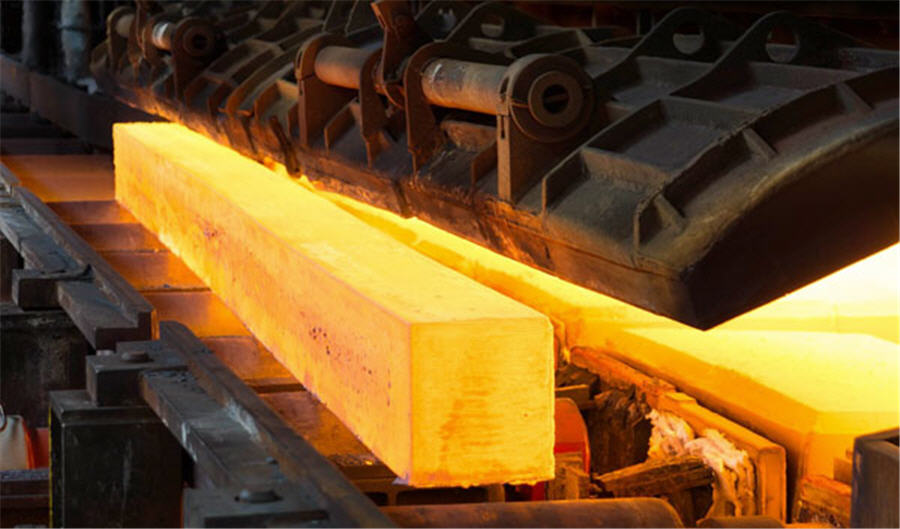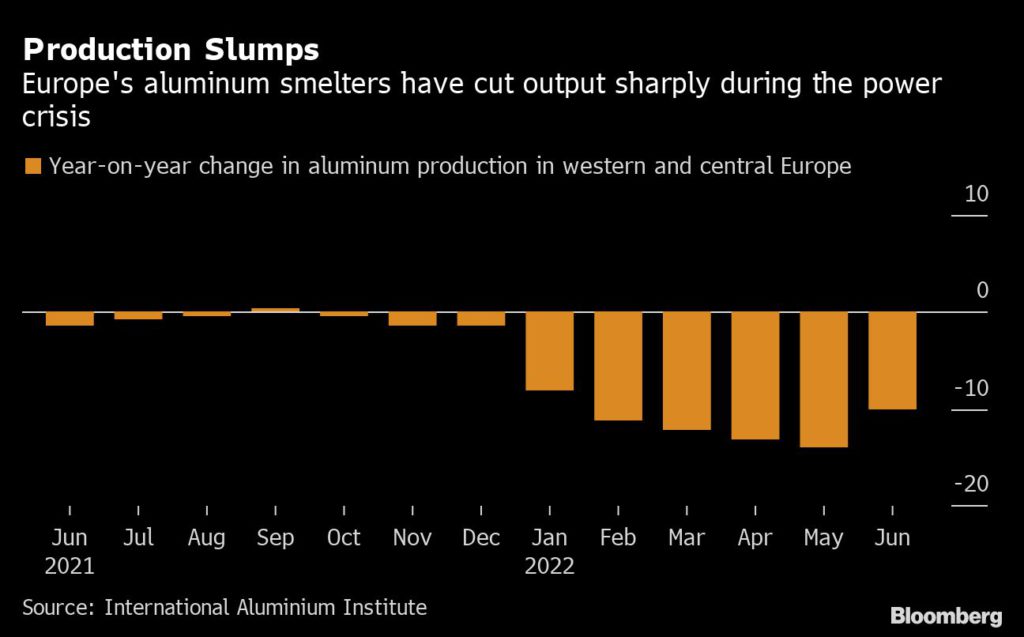Europe’s power crunch cuts zinc and aluminum capacity in half

Europe has lost about half of its zinc and aluminum smelting capacity within the past year, and a further surge in power prices could knock more plants offline over winter, the region’s biggest metal producers warned.
Eurometaux, which represents miners, smelters and fabricators employing 500,000 people in Europe, is underscoring the risks that lie ahead for the industry as the European Union urges member states to cut gas usage to avert a drastic escalation of the region’s energy crunch over the winter months.
The EU’s plan to cut gas usage by 15% will involve walking a tightrope between preserving energy supplies for residential users while mitigating the risk of lasting damage to vital industrial infrastructure. The aluminum and zinc industries aren’t major direct users of gas, but the vast amounts of power that smelters consume has left them at the sharp end of Europe’s crisis.
“Today’s EU gas demand reduction plan makes clear that politicians must make near impossible choices for safeguarding their citizens and industries this winter,” Eurometaux’s director general, Guy Thiran, said in an emailed statement. “Many more facilities are at risk of permanent closure if the EU’s fears of winter gas shortages and power price spikes are realized.”
Aluminum smelters have been hit particularly hard as it’s one of the most energy-intensive metals to make. If the 65 million ton-a-year aluminum industry was a country, it would rank as the fifth-largest power consumer in the world, and further production cuts could make a sizable dent in Europe’s overall electricity usage.
But Eurometaux warned that additional curtailments will take a heavy and lasting toll on the region’s broader green-energy goals. Aluminum’s usage in lightweight vehicles and solar cells means it occupies a key space in the energy transition, but further production cuts would leave Europe more reliant on supply from carbon-intensive smelters overseas.

Imports have surged since producers began cutting output last year, raising European consumers’ carbon footprints by as much as 12 million tons annually, according to calculations by the Brussels-based group.
“Any further reduction of European metals production risks being permanent, threatening job losses and knock-on impacts on a complex web of essential and strategic EU value chains,” Thiran said.
(By Mark Burton)
{{ commodity.name }}
{{ post.title }}
{{ post.date }}




Comments